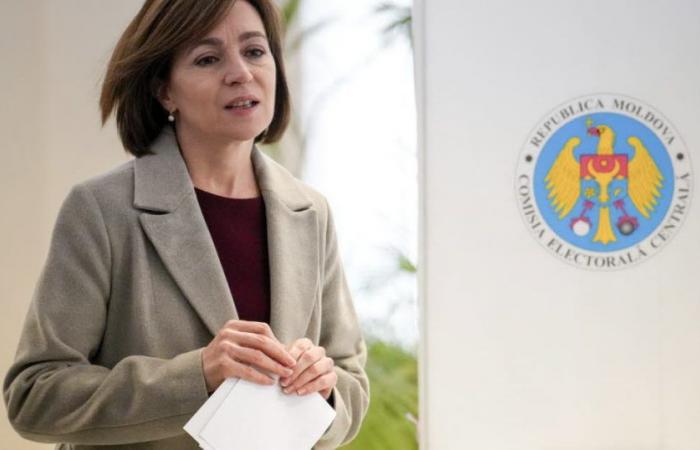Russian influence continues to destabilize the former republics of the Soviet Union. The narrow “yes” victory in the referendum on Moldova’s accession to the European Union calls into question the pro-European turn of this small country of 2.6 million inhabitants landlocked between Ukraine and Romania. The “yes” to Europe finally won narrowly with 50.46% of the votes but the no was still in the lead on Sunday evening before the vote of Moldovans living abroad changed the result of the referendum in favor of membership of the EU.
However, this very close result weakens the European future of Moldova, whose EU accession negotiations were officially opened on June 25, 2024, at the same time as those with Ukraine. “To launch the steps to include in the Moldovan Constitution the objective of joining the EU, the ‘yes’ vote would have to win with much more than 51%, it would have to reach at least minus 60%,” warned Nicu Popescu, former Minister of Foreign Affairs and former Deputy Prime Minister, before the vote. Discussions with Brussels can continue on a technical level but a firm and massive “yes” would have made it possible to send “a clear signal” to Europe, believes Florent Parmentier, political scientist at Sciences Po Paris.
A very poor population
This result constitutes a setback for pro-European President Maia Sandu, who also failed to be re-elected in the first round of the presidential election organized on the same day as the referendum. His score of 42% forces him into a difficult second round on November 3 against Alexandr Stoianoglo, the candidate supported by the pro-Russian socialists. He got 26% but he has a large reservoir of votes. Several candidates should rally behind him to block the outgoing president who also suffers from the purchasing power problems of a population among the poorest on the European continent.
Suspicions of vote buying
Maia Sandu accused Russia of having manipulated the elections through a massive vote-buying system which would have targeted nearly 300,000 voters, according to the Moldovan presidency. The 52-year-old head of state denounced “an unprecedented attack on democracy”.
A few weeks ago, Nicu Popescu recounted how a hundred Russians sent by the Moscow regime had landed at Chisinau airport with nearly a million euros in cash. Everyone had 9,900 euros with them so as not to exceed the legal limit set at 10,000 euros per person for importing cash into the country. Russia is also suspected of having influenced the vote by using disinformation channels against the backdrop of the conflict in Ukraine. “We can estimate the impact of Russian propaganda which brandishes the threat of war at 20% or 30% of the votes,” said the former minister before the election.
For its part, the Kremlin, which maintains around 1,500 Russian soldiers in the separatist region of Transnistria, denounced “ anomalies ” in the vote counting. Vladimir Putin’s spokesperson was surprised by a sudden rise in the “yes” vote this Monday morning which can, however, be explained by rather pro-European diaspora voters while centrists claim equidistance between Russia and Russia. ‘Europe.






